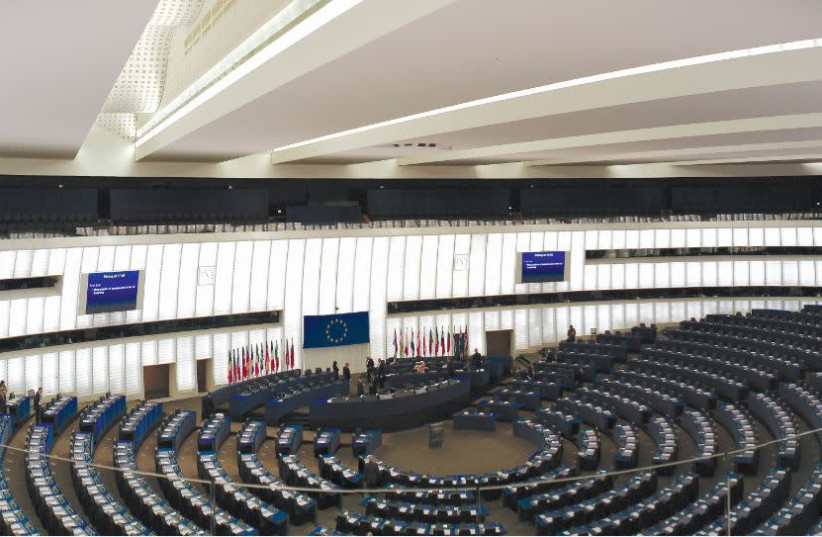Leaders of the Knesset Christian Allies Caucus took part in a conference on Israel’s standing according to international law, together with top members of the European Parliament on Thursday.
The event, which was held both in-person for those who could attend and online, was organized by the European Christian Political Movement (ECPM), in cooperation with the Israel Allies Foundation (IAF).
It was held in the shadow of last week’s announcement by the Belgian government to label Israeli products from Judea and Samaria.
“It is especially important to gather in Brussels together with Christian parliamentarians who are long-standing supporters of Israel to encourage them to broadcast their voice in the international arena,” said KCAC Assistant Director Sharon Weinstein.
Participants also discussed the EU’s commitment to a two-state solution for the Israeli-Palestinian conflict, included an impassioned address by Andrew Tucker, author of the book “Israel on Trial.”
Tucker contested the EU’s demand that Israel accepts a Palestinian state run by the Palestinian Authority.
“Our inter-disciplinary report reviews the genesis and development of this policy over four decades, analyses the legal issues, and examines the wider, regional context,” Tucker said. “We conclude that the EU’s policies are politically-driven, and highly contentious from a legal perspective.
“International law does not mandate the specific solution demanded by the EU,” he said. “The EU is adopting a one-sided policy that contradicts the agreements reached between the parties. Perhaps most alarmingly, it seems oblivious to the current realities in the Palestinian territories and the Middle East. It is time for a new approach.”
Chairman of the EU Israel Allies Caucus MEP Bert-Jan Ruissen made a similar argument: “The EU's continued call for a two-state solution based on the 1967 borders does not do justice to the complex situation in this region and to the Oslo Accords,” he said. “Serious peace negotiations can only succeed if this reality is confronted and recognized.”
The Israeli delegation included Minister of Religious Services Matan Kahana and co-chairs of the Knesset Christian Allies Caucus MKs Yuli Edelstein and Sharren Haskel, as well as KCAC member MK Gila Gamliel.
"It is important that these European legislators know that Israel has solid legal and moral grounds to defend its activities, especially since they are often exposed to anti-Israel rhetoric,” Kahana said. “As a former IDF soldier in the special forces unit, where I served together with Israel’s Prime Minister Naftali Bennet, and as a former fighter pilot and squadron commander, I can share with complete confidence that the actions the Israeli government embarks upon with regard to security stem from both our commitment to Israel as the Jewish state as well as our commitment to protect the democratic rights of all people.”
Haskel said that those who “truly want a better future for the people of this region and to put an end to human rights abuses like those which Hamas inflicts on Gaza and the neighboring regions, should move beyond empty rhetoric and unproductive ideas which have yet to reap any benefits for the Palestinian society.
“We can only hope for a brighter future in this region, including for the Palestinians, if we acknowledge who the real aggressors and criminals are. Israel strives to be a light unto the nations and to build a better future not only for its own citizens but for the global community,” she said.
The KCAC was established in 2007 and consists of 20 members of Knesset from eight political parties. The caucus aims to build direct lines of communication between Knesset members and Christian leaders, organizations and political representatives internationally.
The caucus falls under the umbrella organization, the Israel Allies Foundation, which coordinates the activities of 50 caucuses around the world.

